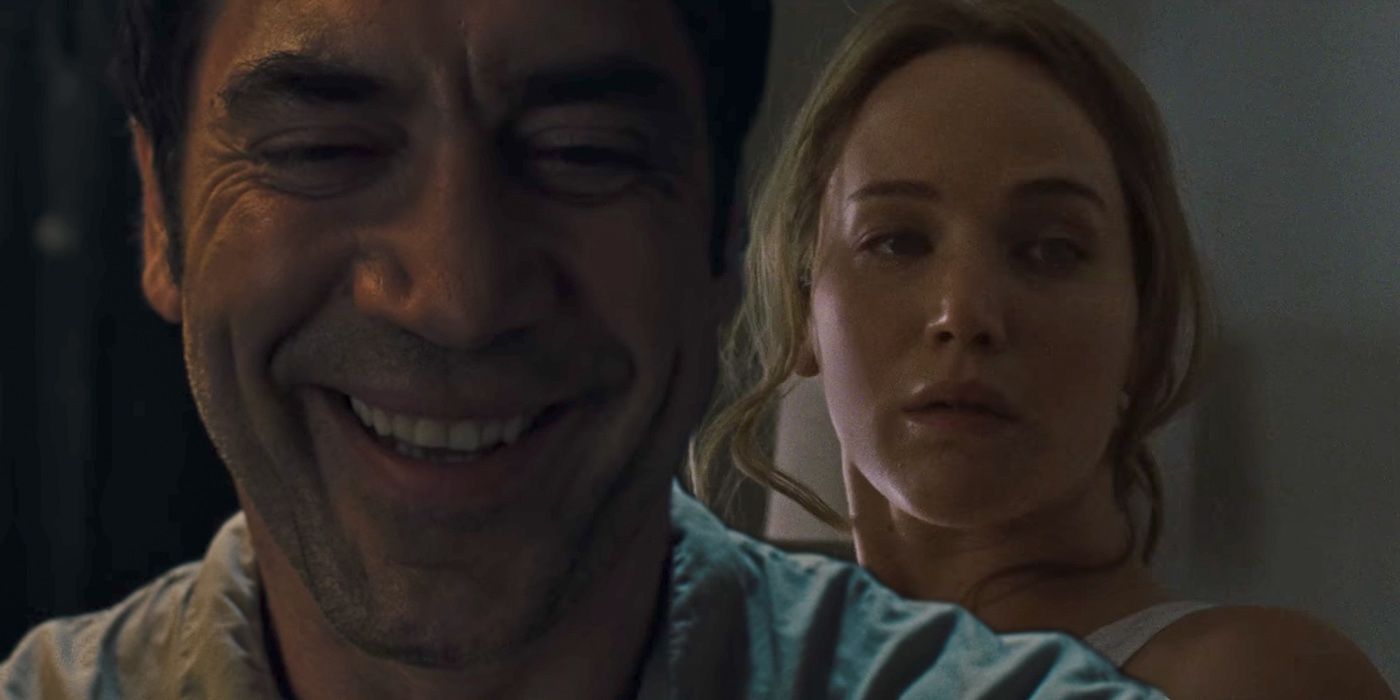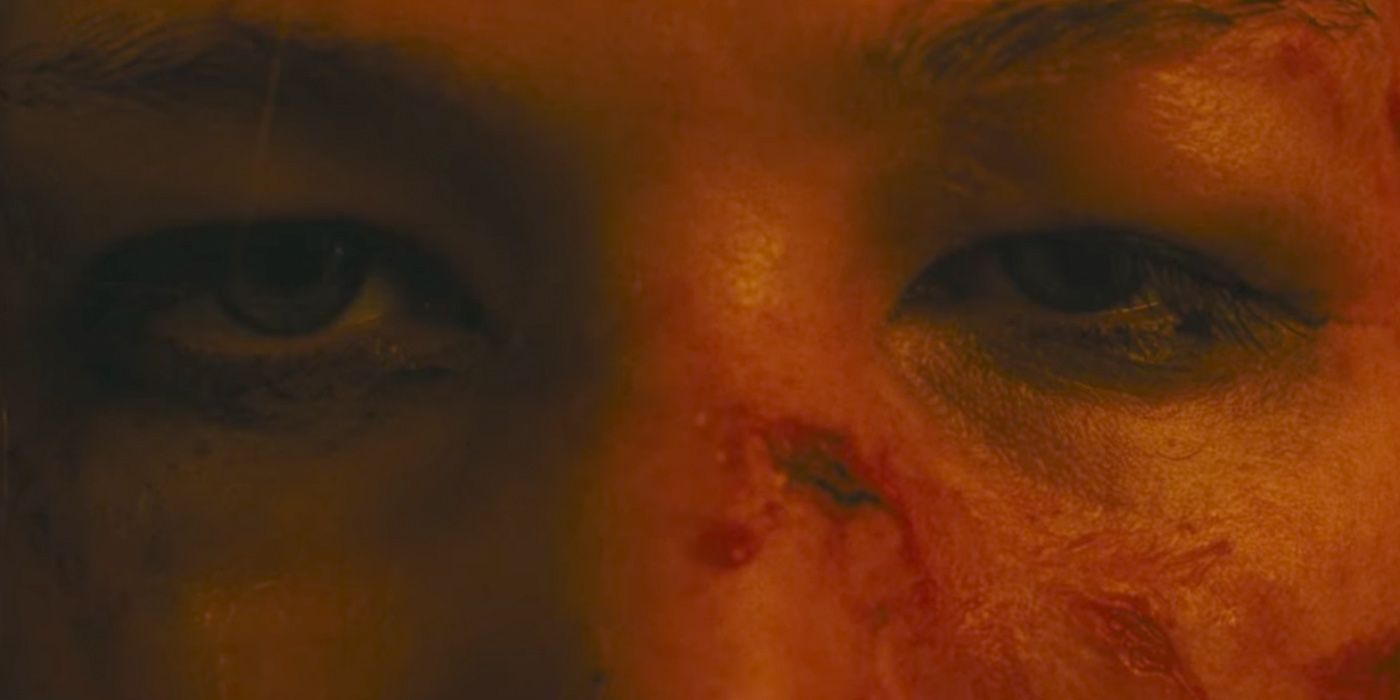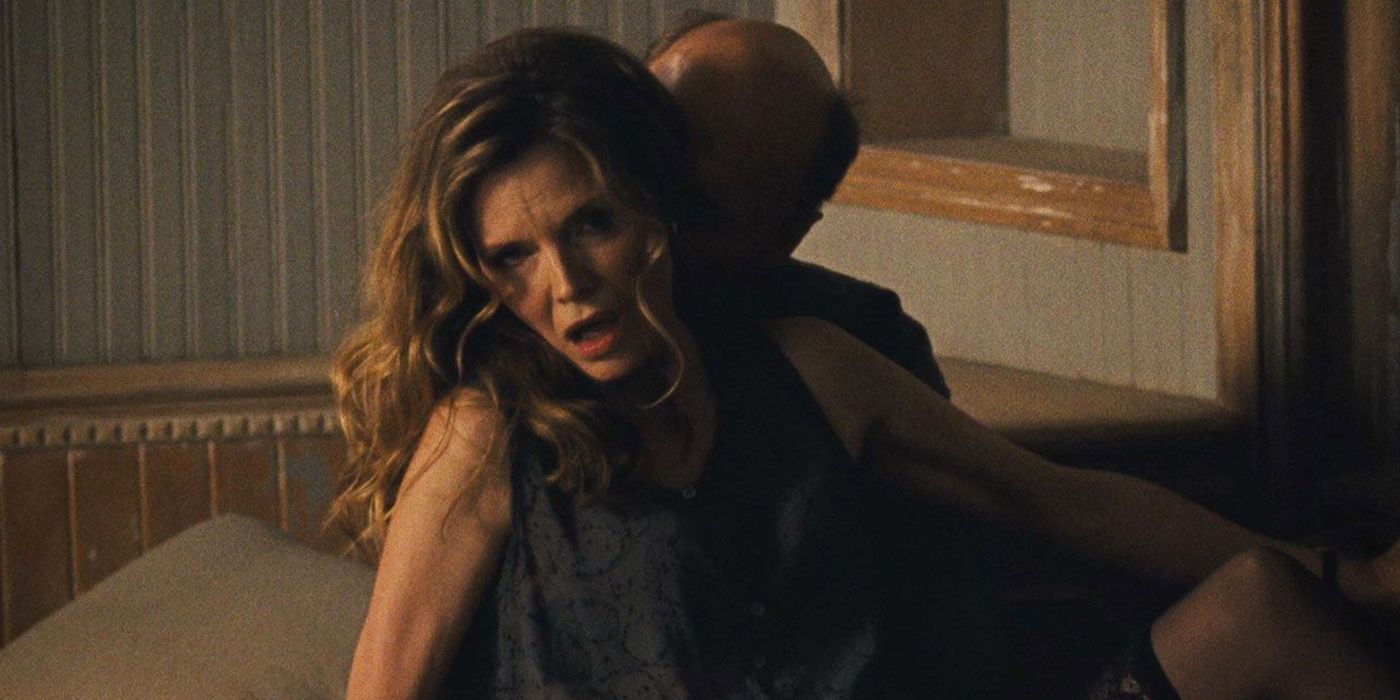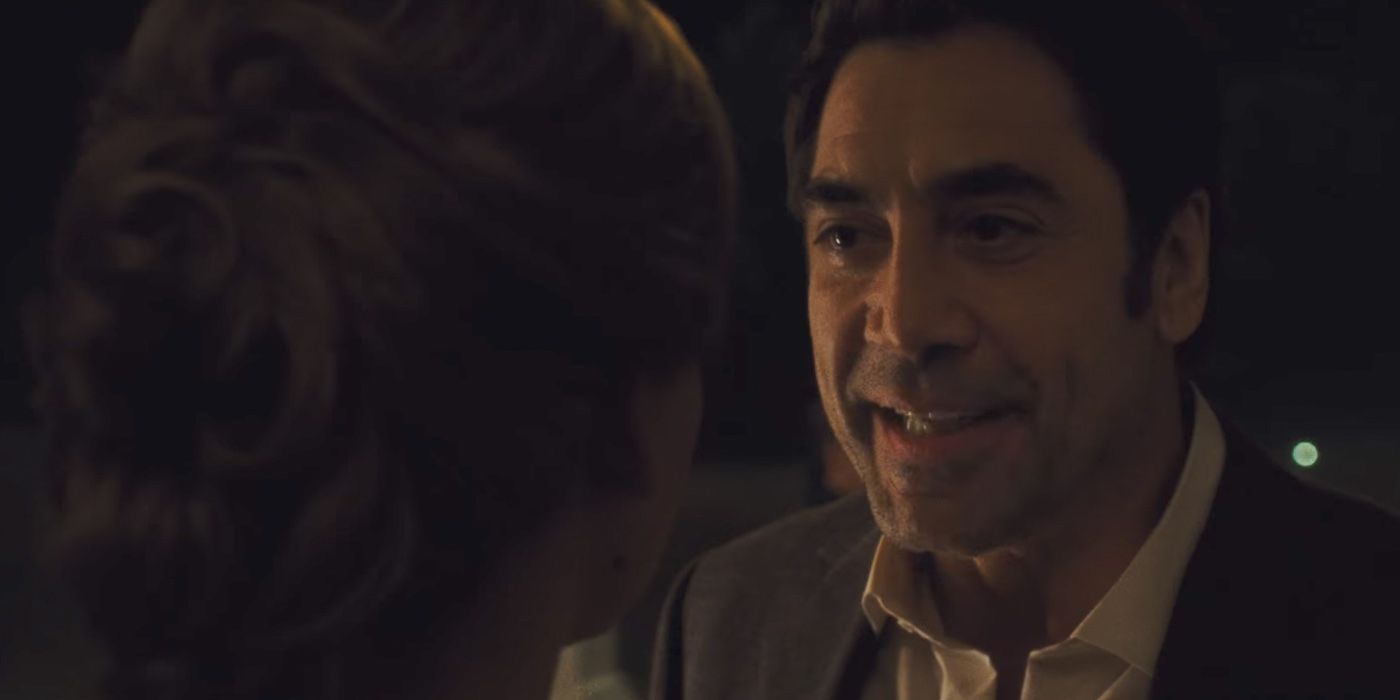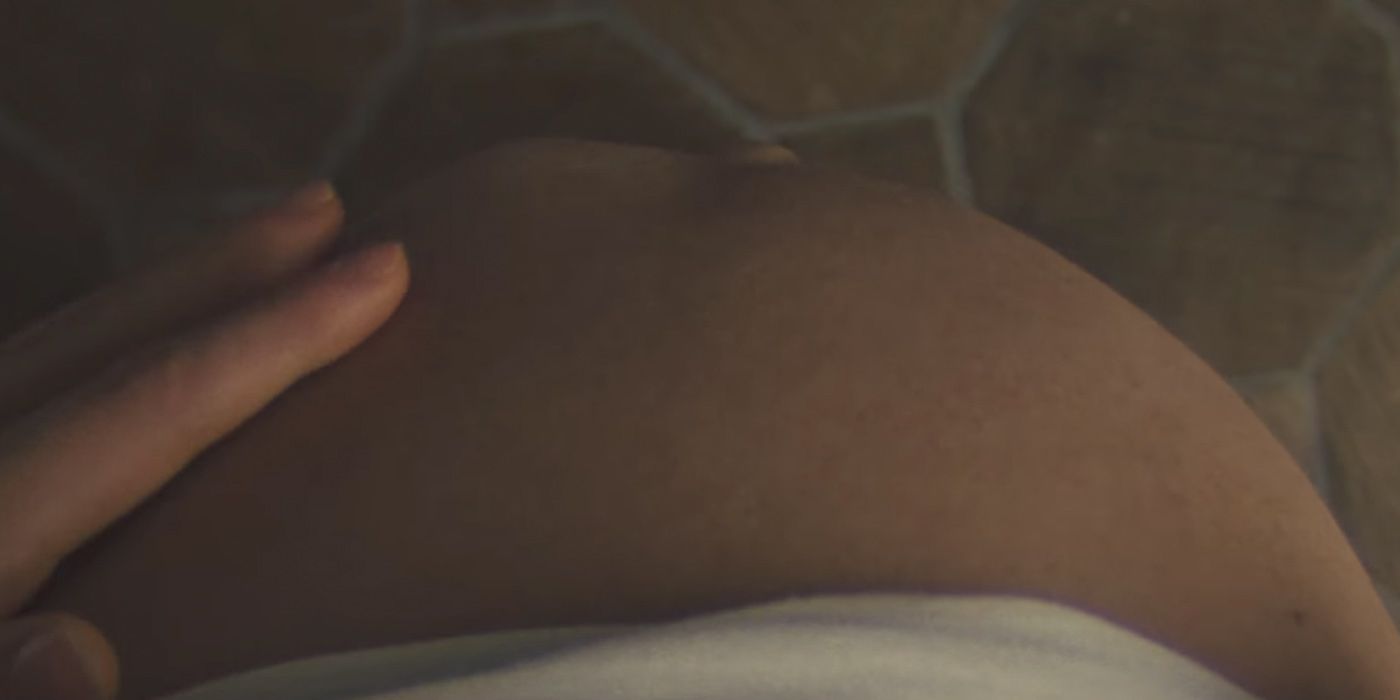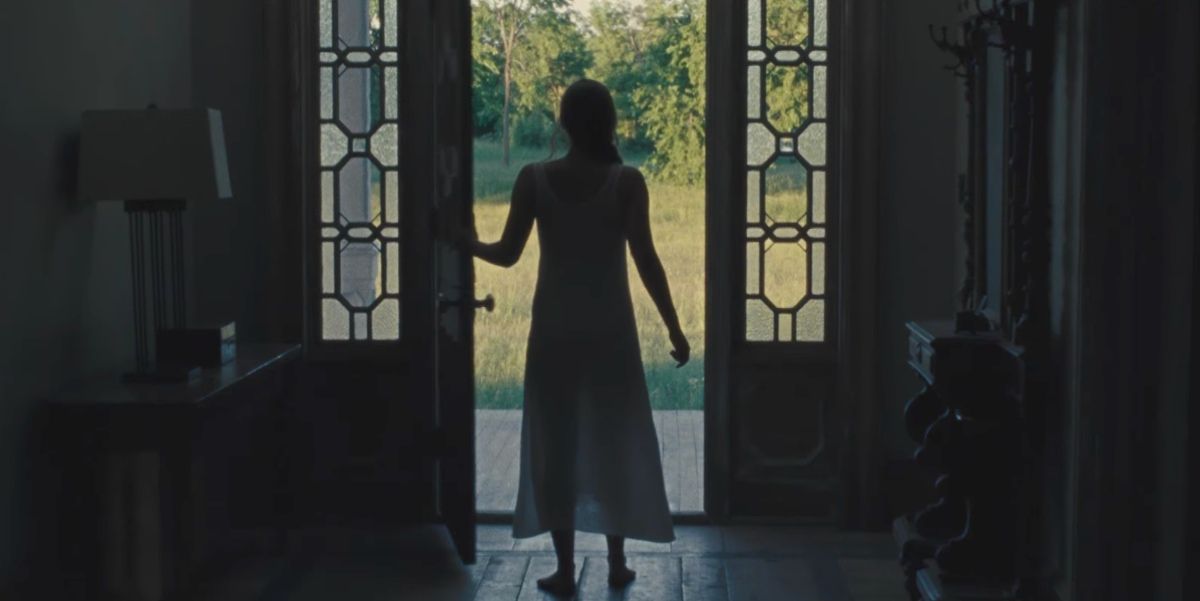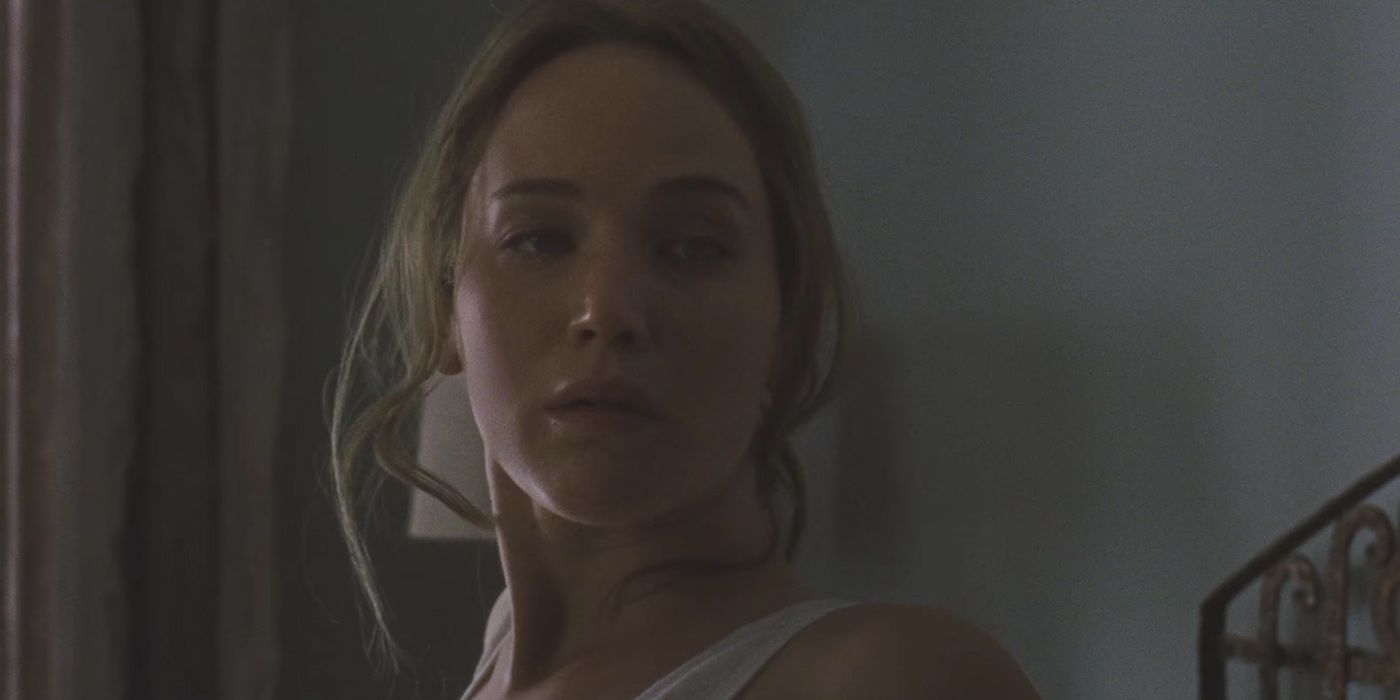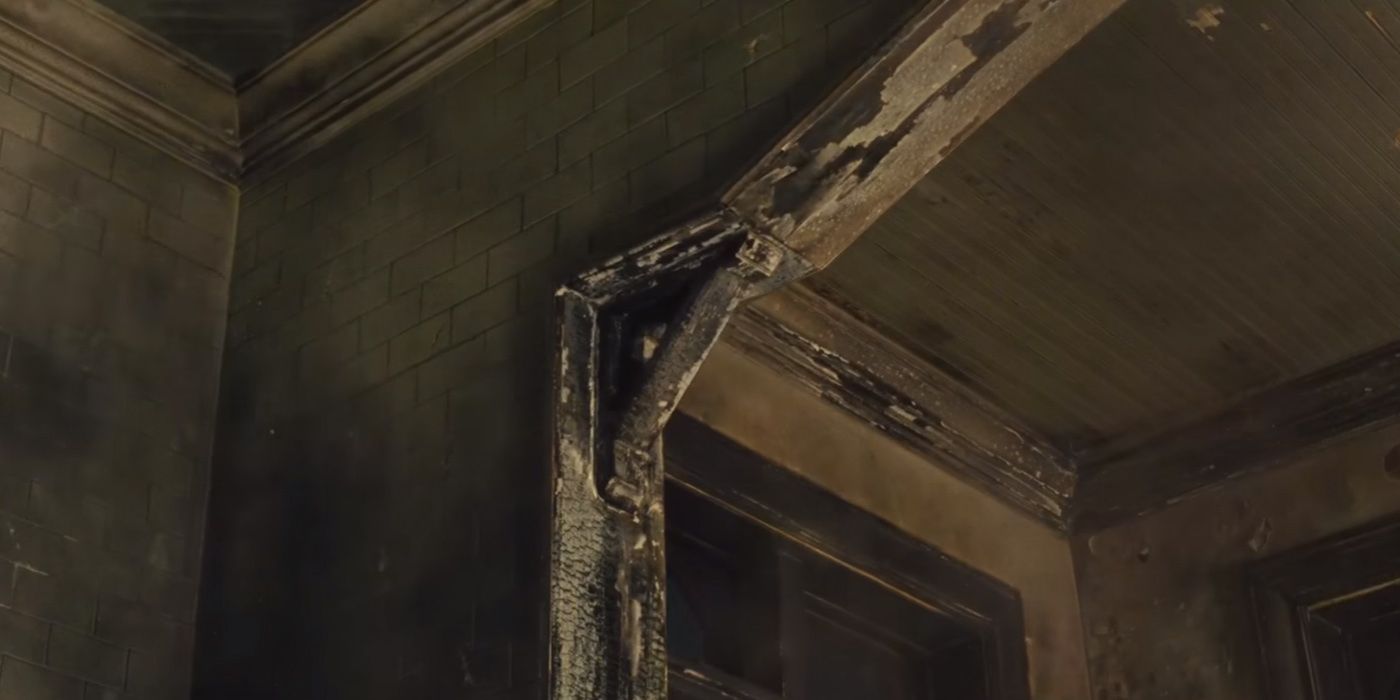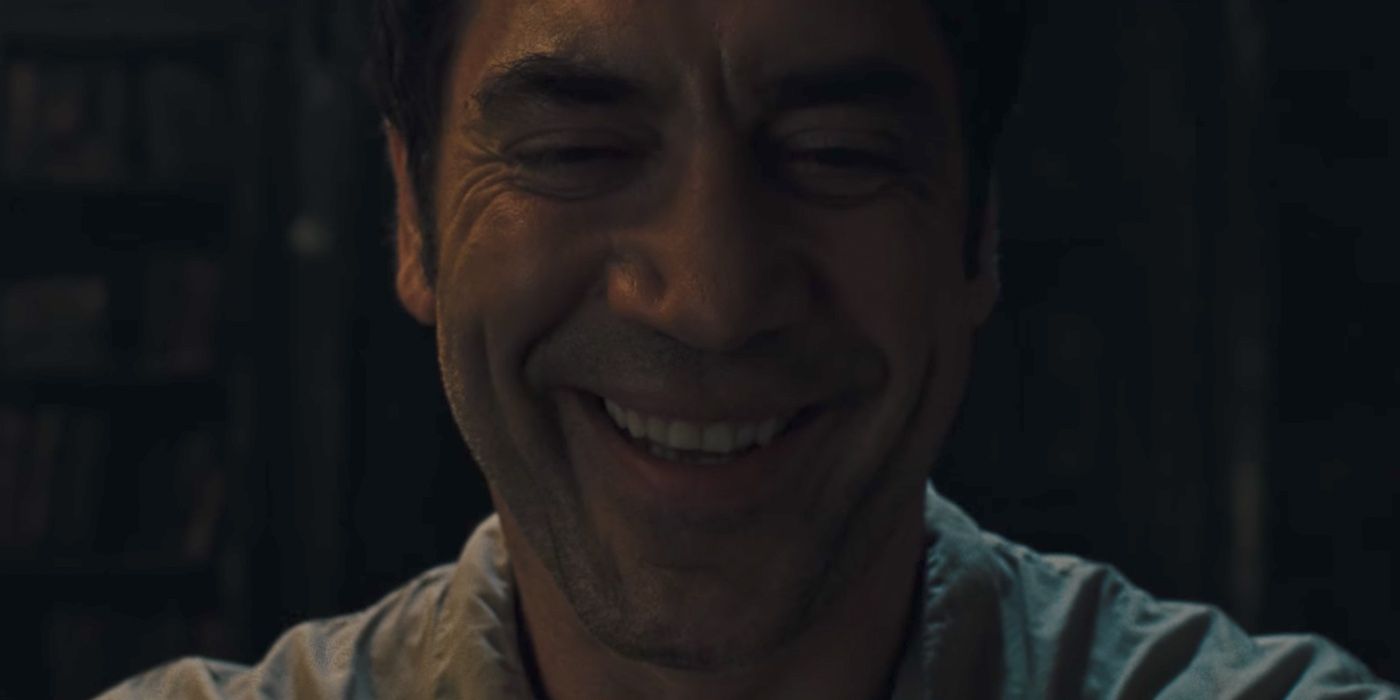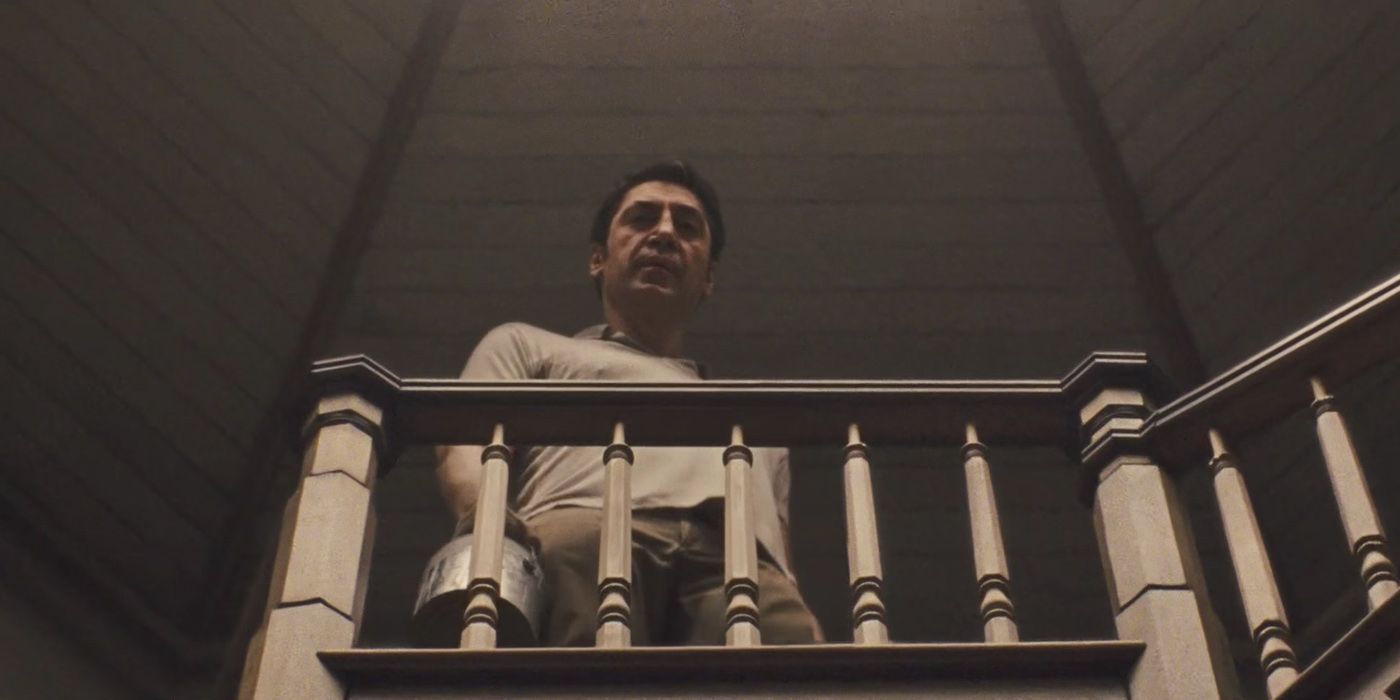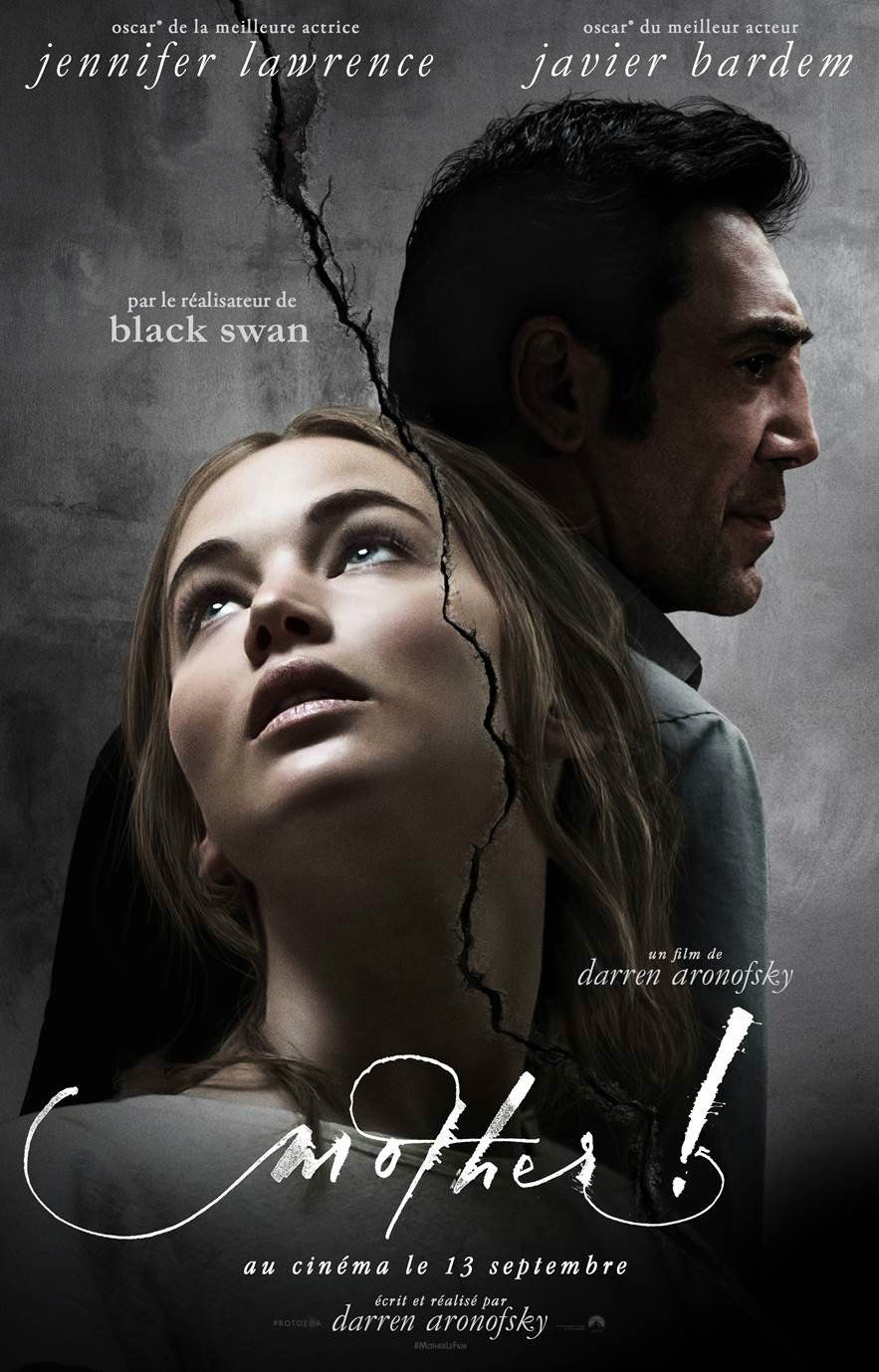Warning: Major spoilers for mother!
-
You've seen weird movies, but you've seen nothing like mother! It's a film that demands discussion and debate, not least about its intense, WTF ending.
Darren Aronofsky's always made films that get under the skin and challenge the mind - from brain-drilling debut Pi by way of intense tour de forces Requiem for a Dream and The Foutain, Oscar-winning success-deconstructions The Wrestler and Black Swan and long-gestating passion project Noah - but his latest brings all those threads together into something wholly unique.
Related: How Scary is mother?
But what actually is mother! about? Even if you've seen the movie that's hard to pin down. It's not the home invasion thriller of the trailer yet still has that creeping tension. It's not the all-out horror some are praising it as yet still contains some of the darkest things you'll see in a cinema this year. Put simply, it's a film that doubles as literal and metaphor: the film is plainly a chilling story of a married couple losing their intimacy, while figuratively a blunt dissection of creation.
We're going to look at both sides today in our mother! ending explainer. But let's first start by tackling those biggest dangling questions.
mother! Movie Plot Explained (This Page)
Who Are The Couple And Why Don't They Come Back?
As we start the film, Him (Javier Bardem) and mother (Jennifer Lawrence) live in relative harmony; He is a struggling writer who craves appreciation to continue his work, she's driven to restore the house, both are happy. Then the couple arrives.
Two characters known only as Man (Ed Harris) and Woman (Michelle Pfeiffer) turn up separately at the house, at first seemingly merely lost but it soon becomes clear they're fans of His work and that Man is sick, wanting to see the writer before he died. mother, already exhausted by her husband's hospitality and the couple's seeming disregard for her house, snaps when they sneak into His office and break the life-giving crystal (more on that later). She demands they leave. However, the couple's sons turn up to debate their inheritance from their dying father, and in the process his Oldest Son (Domhnall Gleeson) kills the Youngest Son (Brian Gleeson). The former runs away and the couple and Him take the dead son to the hospital. mother cleans up and finds the blood has somehow infested the house. He then returns with the couple and their ever-growing extended family, overrunning the house and invading their privacy until mother boils over and demands they leave for good.
On a basic level, the couple are plot motivators. All of this leads to conflict between Him and mother that boils over into the movie's pivotal creation: they have sex for the first time in what appears to be an age from which she becomes pregnant, while seeing all those people gives Him the inspiration to write his masterwork. But they also have a more subtle effect. The blood of the Youngest Son somehow infects the house, remaining a fleshy mark in the house's floor that can't be removed or covered up; a physical representation of the mental stress the experience has placed on mother.
As for why Man and Woman don't return? Well, it's simple - they were told to go. mother, for lack of better word, banished them from the house.
What Is The Poem and Why Does It Have Such An Impact?
The content of the poem Him writes that starts the final descent isn't revealed in the film. That is, of course, incredibly purposeful; the point isn't what it actually says, rather what it represents. When mother reads it, she sees a visual representation of the house's creation - Him and mother embrace in the clearing and their love gives the building and surrounding area life - very similar to the sequence of life-giving in Noah (which has grander thematic links - stick around).
Related: What Does The Poem in mother! Say?
It inspires others too in a variety of different, personal ways, driving many, many more to visit the house. The poet loves the adoration and wants to welcome anyone into the house, while mother fights against it. Her apprehension is proven right, as the culture built around her husband goes from a faith-based mob into outright destruction. The film's already fluid presentation of time (something established early on with the suddenly-massive party) reaches fever pitch in this sequence; we take a step further into anarchy pretty much every time the now-heavily pregnant mother enters a new room.
And that's all from the poem. The full meaning will be explored later, but at its core we have the director highlighting insane devotion from a small piece of text and how a creator takes that.
Why Does The Mob Kill The Baby?
mother takes sanctuary in His office and has their child, who her husband wants to show to his acolytes. She refuses repeatedly but He eventually gets his way, leading to one of the film's most shocking sequences: the crowd surfs the baby and then begins tearing it apart. It's suggestive yet still incredibly gruesome and horrifying, amplified by Lawrence's screams.
In a full-on crazy ending, this may be the most logically-presented element. It happens because, to the crowd, there's little distinction between the poem they adore and this other product of Him. They feel ownership of the paper and the human in equal measure and want a literal piece of it.
And, with that established, we can now take a look at the bigger picture and the confusing ending.
What Actually Is The House?
The entire film takes place in the house, which we see at the start given life when a glowing crystal is placed in a purpose-built stand by Him. We later have it stated that it was renovated by mother and see her around the house fixing it up.
From the very start, this establishes the film's ethereal presentation and the strange connection between her and the building; you often see locations alleged as characters in films, but it's actually true here. mother and the building are one; they both use a mixture of yellow powder to hide flaws (the tonic and plaster respectively), the heart beating in the hidden cavern in the basement, slowly shriveling as its vessel becomes more invaded, symbolizes her own, and her mounting anxiety is directly related to the physical stresses put on the house.
As we see at the end, though, that connection is fully existent in the movie's world. mother is the house.
The Time Loop Ending Explained
After the death of the baby, mother snaps and attacks the crowds. She eventually realizes the only way to stop the decimation of the home she's worked so hard on is to burn it down. She ignites the gas in the basement and incinerates herself, the building and all its inhabitants. All except Him, who takes mother's charred remains to his office and pulls out her heart, now so shriveled and compressed it's become another diamond, and places it on the now vacant stand. Life returns to the house
So, as we've seen, mother! is, in an almost reductive term, a loop; He takes the heart of a dead mother and uses it to bring the house back to life, creating a new mother to care for it. We only see one cycle, a single link in the chain - the Jennifer Lawrence mother had just been created in-universe at the start, meaning we saw her all the way from "birth" through to death - but that this happens at least three times would indicate that it's set to recur forever.
There's some ambiguity about whether He is good or bad in this situation. We open and end on him laughing maniacally, a stereotypically evil action, but there's a delicacy to Bardem's performance that suggests genuine delight. He's relishing in bringing life, and the knowledge that it will, in turn, allow him to give joy to others. Still, there is a ruthlessness within that - a willingness to let people die for progress - which regardless changes his perception throughout the film.
What Kills The House?
The other big question in regards to the loop is the point of no return - when is the death of mother and the destruction of the house set as a certainty within any given loop? Is it when the previous crystal is destroyed, necessitating a sacrifice to keep life going? Or is it brother killing brother, the action that leaves such a noticeable scar on the house? Practically the former seems more likely, although both have strong symbolism.
However, given the recurring presentation of mother's beating heart slowly shriveling, it may be something more. She is the one who burns the building down, and it's the repeated action of the visitors that slowly drive her to that point. It would seem there's no grand moment where the house's fate is sealed, but a series of ramping circumstances that make it unavoidable. This would fit with the film's focus on stress via its sound mixing and misrepresentative time passing, and also plays rather neatly into the bigger picture.
mother! Is a Retelling of Creation
You can read mother! totally literally as outlined already should you wish. Time loop aside, it has strong performances and character throughlines that make it fulfilling as a thriller that fits an overarching logic. But that's not what it's real purpose. Taking the baton from Noah, this is actually Darren Aronofsky's take on creation.
The parallels are obvious: Javier Bardem is God (hence the capitalized Him); Jennifer Lawrence is Mother Earth (explaining her symbiotic relationship with the house); Ed Harris is Adam and Michelle Pfeiffer Eve; destroying the crystal's original sin; their sons are Cain and Abel; the blood stain on the house an ever-present mark of evil; the writing thus a representation of some form of scripture; and everything that follows a presentation of the devotion and ills of religion.
What makes this allegory unique is that, whereas religious tales are typically told from God's perspective (the Bible is meant to be his word), here we're seeing it from Earth's. The callous destruction and flippancy of an interchangeably forgiving and vengeful creator is treated on a wholly human angle, viewed from the position of the unseen woman in the creation relationship.
Related: mother! Bible & Creation Metaphor Explained
You can read more about how this works and what it means in our full feature, but for now we'll focus on the ending. This is where the metaphor is most unavoidable, but also fluid. It would be easy to read this as a version of the Great Flood and its reset of the world, but in this reading that's mother kicking out the funeral party and wouldn't gel with the never-ending loop. mother!'s ending is instead the Apocalypse, a hard reboot of the world that's as dark and distressing as wiping out those who love you should be. The ultimate point, then, is that God is flawed but constant.
There's a more modern element to this too. This isn't a timeless yarn put in the present: it's applying the message to our world. By the director's own admission, mother! was inspired by the increasingly fraught global landscape and our relationship with our planet - both in an ecological and broader, harmonic sense. He's not just representing the trials of creation, he's showing the damage that we have wrought to and continue to level on it.
mother! Is Also About Darren Aronosky's Views on Art
It's not quite as unifying, but there's also a more meta reading of the film that links into Aronofsky's non-Noah recent films.
For starters, we can not ignore the parallels between the mother and Him characters and the actress and director themselves. Here Jennifer Lawrence is in a relationship with a man old enough to be her father who's a tortured genius, which feels only a few steps from her real life relationship Darren Aronofsky. The film was written before the pair got together - they actually met on the project - but it shows an astute awareness of age in romance all the same.
What's more interesting and pertinent, though, is the concept of ownership of art and the artist. Both The Wrestler and Black Swan were very much about creatives struggling for their art, something that is present here in regards to Him. However, mother! sees the director go further. Here the audience not only immediately take the life-changing writing as their own, but the writer's very existence too. They see him as worthy of ownership, a lament of a highly personal filmmaker, perhaps? The over adoration for a simple poem and the tearing apart of the baby are two sides of the same coin Aronofsky has certainly experienced.
-
Many will find mother! pretentious and a film sycophantic to praise, but considering the multi-layered nature of the story and how this element is just one part of the bigger picture (and just how well it's done), it's more than allowed.

